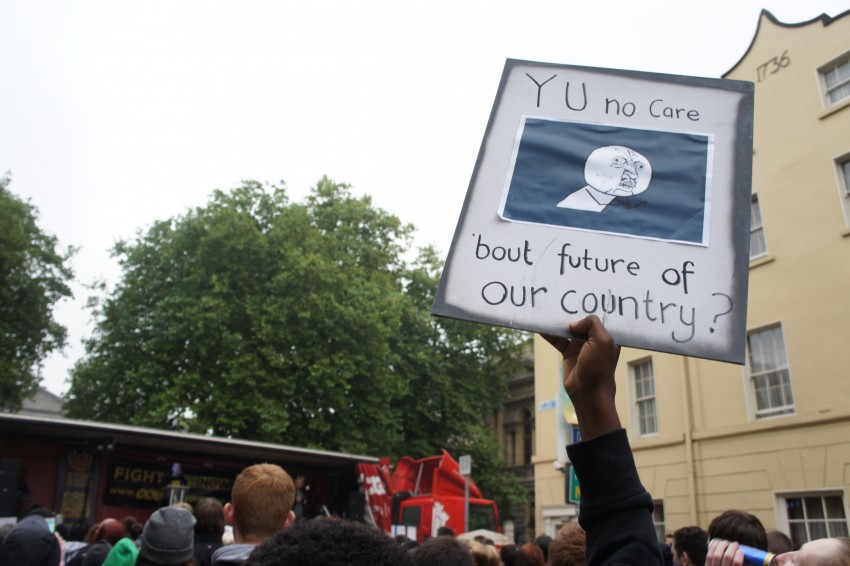Daniel O’Brien | Staff Writer
Ireland’s millennials are facing a crisis of employment: roughly 30% are jobless without accounting for the hundreds of thousands who have simply chosen to leave the country. It is natural for those hit hardest by the economy to call most audibly for a solution. Ireland’s youth, however, should be wary of the calls for populist, pseudo-economic remedies that are so popular with politicians and their constituents in the short-term (i.e. before the next election) yet equally detrimental to long-term economic health.
It may first be helpful to put Ireland’s youth unemployment situation in a proper global context. The Germans face a youth unemployment rate of 8%. In America that rate is 15%, while in Spain and Greece it exceeds 50%. It should be clear that these numbers vary primarily in accordance with recent economic performance as well as with structural differences like minimum wage laws and tax systems. More importantly the rate does not vary in any meaningful way with total or proportionate levels of spending on job training or similar programs that target youth unemployment. That is not to say that such spending has no place in the budget, but rather that it should be a purely supplementary concern in the context of promoting economic growth.
The current government literally cannot afford frivolous budgeting
The Union of Students in Ireland (USI), apparently, has a far different view on the issue. As part of its ten point plan for post-bailout Ireland USI criticises the €14 million recently budgeted for the Youth Guarantee scheme as inadequate and argues that an investment of almost twenty times that amount is necessary. While throwing almost €300 million at almost any problem would make it go away, doing so presently would be short-sighted and entirely inconsistent with the goal of recovery. The biggest economic threat still facing the nation is a ballooning debt-to-GDP ratio: the result of taking on bad debt from Irish banks combined with a decrease in consumption and output in the Irish economy. The current government literally cannot afford frivolous budgeting, but the need for responsible policy should not leave students without hope.
Ireland is clearly in a better situation than its fellow bailout recipients. In the latter half of 2013 its output grew at double the forecasted rate, with particularly promising growth coming from construction spending (up 15% on the year). The return of construction jobs is particularly important for young Irish males, those who just half a decade ago looked forward to earning a desirable wage without third level education. Although such jobs have been relatively “gone” in recent years, there has been little underlying structural change in the economy. The Celtic Tiger jobs are waiting for a new Celtic Tiger economy, and barring significant changes at the European level that could hurt the country’s appeal for foreign investors, the future is bright. Ireland still needs massive improvements to its infrastructure and its wages, workforce and tax structure remain attractive for multinational firms targeting European expansion.
Those hurt most by austerity have not been those whose actions necessitated it
The levels of unemployment sustained during the financial crisis are tragic on both a personal and a policy level, but the lessons taken from this tragedy should not be forgotten just as the nation appears poised for recovery. The government has had success with its austerity budgets, even if it may rightly be argued that those hurt most by austerity have not been those whose actions necessitated it. Regardless, the country should move forward realistically within its present constraints and not be distracted by the panic and populist concerns that too often dominate Irish politics.
With policies that properly support (or fail to unduly impede) an acceptable level of growth, unemployment can be addressed without undermining the budget. After all, Ireland’s youth do not need to be re-trained for some kind of “new” economy; they need the economy that benefitted their parents to return and do likewise for them.







